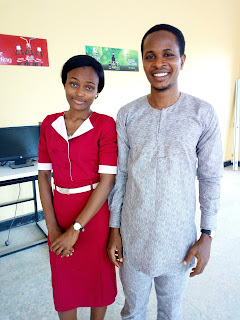THE PARODY OF AFRICAN CIVILITY
The greatest tragedy that stunted the growth of African Countries is the outright replacement of her pre-extant socio-cultural science and art. Africa’s heritage was the nucleus of her development; the ways of life of the people, idiosyncrasies, language, foods, and values are at the heart of the heritage. But colonization of the region was a tsunami that washed off the roots of the peoples’ existence.
The resonating effect of colonialists has left African continent in confusing double identity, where official axis is at extreme dissonance with the heritage dubbed unofficial. All African countries that adopted the language and mannerisms of dress of their colonial masters are ethnical mutants.
Altering the Devine nature of Africa is an unforgivable sin that has plagued the identity of the new hybrids, thereby creating a new ethos, and originality is lost. At early stage of school, an African child is subjected to two parallel modes of reasoning, the western mode that recognizes A for apple, and the, say Yoruba one that chants Ha! for Aja (dog). This is traumatic for any child whose environment is local, like seventy percent of the rural children. This bring to fore, the concept of Education.
The construct, Education is the most misconstrued phenomenon in African parlance. It is often associated with fluency in the official language. Education transcends what we have been made to study in an instituted school of learning. It is beyond being literate and or numerate. It is not measured in certifications that have overwhelmed the sanity of our labor sector.
Education is laakaye.
I wrote that smiling at our cute folly embedded in the struggle of translating Yoruba to English. So let me dare you dear reader to develop a word or words for high level of uncommon levels of common sense.
Laakaye is the expected level of reasoning and wisdom relative to age, trade, religions and countless phases of our live's prisms. It is a strong Yoruba word to mean maturity cum experience. It transcends PhD or any other highfalutin paper qualifications.
It is the dearth of laakaye that makes a police officer to solicit bribe, a judge to to be biased, a doctor to be carefree, a teacher to be lazy, a politician to be greedy, a pastor to be selfish, phcn to... Bewildered I am. Can't exhaust the list.
Literacy and numeracy are the shortest courses in Education. We learn to read and write to be literate, we learn logic of number dynamisms to be numerate; perfect. But these are just conduits to transport our education for human developments.
Inherent in laakaye are diligence and humility on which we prided and taught ourselves through those didactic Yoruba rhymes by Fagunwa & Co. It wasn't difficult to recognize the ingredients of success as a child. But our values are now on the wane, and no longer do we regard hard works as a noble thing.
The greatest tragedy that stunted the growth of African Countries is the outright replacement of her pre-extant socio-cultural science and art. Africa’s heritage was the nucleus of her development; the ways of life of the people, idiosyncrasies, language, foods, and values are at the heart of the heritage. But colonization of the region was a tsunami that washed off the roots of the peoples’ existence.
The resonating effect of colonialists has left African continent in confusing double identity, where official axis is at extreme dissonance with the heritage dubbed unofficial. All African countries that adopted the language and mannerisms of dress of their colonial masters are ethnical mutants.
Altering the Devine nature of Africa is an unforgivable sin that has plagued the identity of the new hybrids, thereby creating a new ethos, and originality is lost. At early stage of school, an African child is subjected to two parallel modes of reasoning, the western mode that recognizes A for apple, and the, say Yoruba one that chants Ha! for Aja (dog). This is traumatic for any child whose environment is local, like seventy percent of the rural children. This bring to fore, the concept of Education.
The construct, Education is the most misconstrued phenomenon in African parlance. It is often associated with fluency in the official language. Education transcends what we have been made to study in an instituted school of learning. It is beyond being literate and or numerate. It is not measured in certifications that have overwhelmed the sanity of our labor sector.
Education is laakaye.
I wrote that smiling at our cute folly embedded in the struggle of translating Yoruba to English. So let me dare you dear reader to develop a word or words for high level of uncommon levels of common sense.
Laakaye is the expected level of reasoning and wisdom relative to age, trade, religions and countless phases of our live's prisms. It is a strong Yoruba word to mean maturity cum experience. It transcends PhD or any other highfalutin paper qualifications.
It is the dearth of laakaye that makes a police officer to solicit bribe, a judge to to be biased, a doctor to be carefree, a teacher to be lazy, a politician to be greedy, a pastor to be selfish, phcn to... Bewildered I am. Can't exhaust the list.
Literacy and numeracy are the shortest courses in Education. We learn to read and write to be literate, we learn logic of number dynamisms to be numerate; perfect. But these are just conduits to transport our education for human developments.
Inherent in laakaye are diligence and humility on which we prided and taught ourselves through those didactic Yoruba rhymes by Fagunwa & Co. It wasn't difficult to recognize the ingredients of success as a child. But our values are now on the wane, and no longer do we regard hard works as a noble thing.










